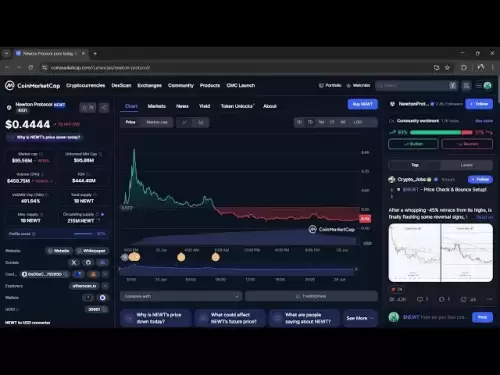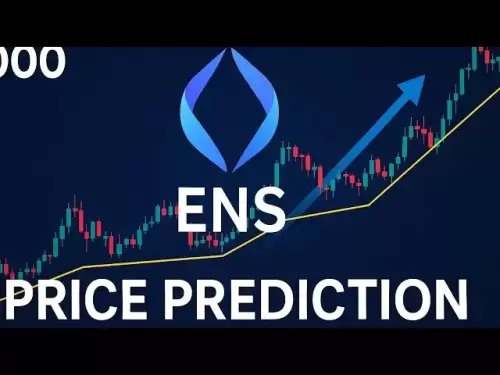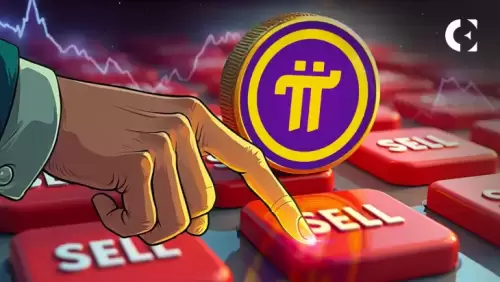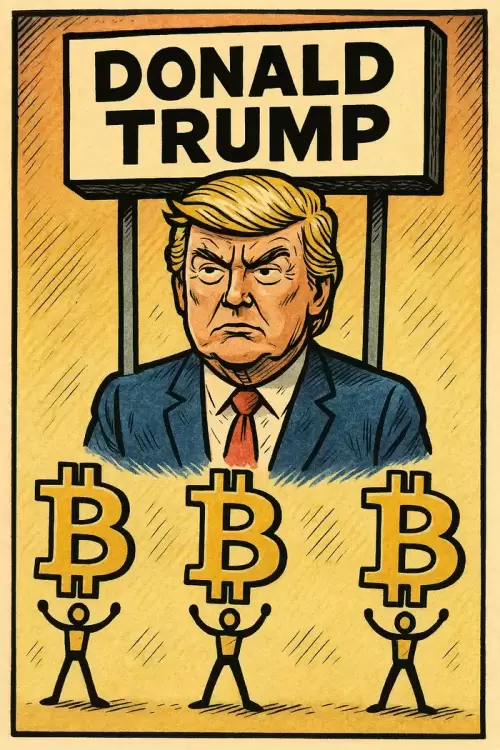 |
|
 |
|
 |
|
 |
|
 |
|
 |
|
 |
|
 |
|
 |
|
 |
|
 |
|
 |
|
 |
|
 |
|
 |
|
Cryptocurrency News Articles
Leading legal and financial experts have cautioned political leaders that stablecoin adoption plans pose a danger to the South Korean economy.
May 20, 2025 at 07:30 am
US dollar-based stablecoins could have an impact on exchange rates and fiat currencies.

Leading legal and financial experts have cautioned political leaders that plans to adopt stablecoins pose a danger to the South Korean economy.
Experts say that US dollar-based stablecoins could have an impact on exchange rates and fiat currencies.
The comments came at a digital assets-themed meeting of the Korea Economic Association at the FKI Tower Conference Center in Yeouido, Seoul, on May 19.
The FKI Tower Conference Center in Yeouido, Seoul, South Korea. (Source: FKI TV/YouTube/Screenshot)
An expert panel expressed concerns about the possible proliferation of dollar-based stablecoins in South Korea.
The panel argued that stablecoin usage would reduce the volume of won-based payments made by both individuals and corporations in South Korea.
It also claimed that the central Bank of Korea (BOK) could suffer as a result. The BOK, experts said, could lose the ability to manage money supplies or intervene in the foreign exchange markets.
The BOK has made similar statements in recent days, in response to stablecoin-related manifesto pledges from the leading presidential candidate Lee Jae-myung.
Seoul shares open lower following US sovereign rating downgrade — The Korea Herald (@TheKoreaHerald)
Lee Jae-myung has pledged to launch a KRW-pegged stablecoin if he is elected President on June 3. Members of his party, the Democratic Party, have also argued that financial regulators – and not the BOK – should have the final say on stablecoin issuance.
But others want to use existing stablecoins in their adoption plans. They claim that failing to adopt is hampering Seoul’s tech competitiveness.
These advocates favor allowing South Korean firms and payments companies to work with high-cap stablecoins like USDT and USDC.
However, Lee Seung-seok, a senior researcher at the Korea Economic Research Institute, warned:
“If dollar-based stablecoins become established as a means of payment in South Korea, this could bring about structural changes in the won/dollar exchange rate determination mechanism. Exchange rates could soar due to a drop in KRW demand and an increase in demand for foreign currency.”
The researcher added that dollar-based stablecoins allow for rapid capital mobility. He added that their decentralized nature “could result in large-scale capital outflows in the event of a crisis.”
The market cap of USDC over the past month. (Source: CoinMarketCap)
Kim Hyo-bong, a former Financial Supervisory Service official, said that Washington and Brussels were both likely to launch stablecoin legislation in 2025. Kim said:
“South Korea should also make sure it acts in line with global trends.”
Kang Tae-soo, a visiting professor at the KAIST Graduate School of Finance and a BOK Monetary Policy Committee member, said that stablecoins offer firms advantages in the payment and settlement spaces.
But Kang concurred that stablecoins were difficult to control. He said they could sow uncertainty in the monetary and foreign exchange policy sectors.
The academic argued that the BOK and the government needed to ensure adoption plans “minimize side effects and maximize advantages.”
However, others warned against the dangers of over-regulation. Namgung Joo-hyun, an Associate Professor of Commercial Law at Sungkyunkwan University, said that the “global digital asset paradigm is rapidly changing.” He said:
“We must take steps to ensure South Korea does not end up isolated due to excessive regulations. We need to establish a financial framework that provides both international consistency and industrial competitiveness.”
Foreign direct investment in Korea fell four notches in 2024 from a year earlier, ranking 17th among the world’s top 30 economies, data from the Bank of Korea (BOK) showed Sunday. — The Korea Times (@koreatimescokr)
A War of Words
Meanwhile, the presidential candidates’ stablecoin war of words continues. During the first televised debate between the four leading candidates for the June 3 poll, Lee Jae-myung reiterated his commitment to launching a KRW-pegged coin.
The four leading candidates for the South Korean presidential election meet for a televised debate. (Source: JTBC/Screenshot)
But reported that Lee Jun-seok, of the rival Reform Party, challenged the frontrunner on the matter.
Lee Jae-myung refuted Lee Jun-seok’s challenge, claiming that “stablecoins based on fiat won collateral are stable.”
However, Lee Jun-seok claimed that there were “no use cases” for any sort of stablecoins that use a peg other than the USD.
He continued, explaining that USDC and USDT, combined, “account for 90% of the stablecoin market.” Lee Jun-seok asked the frontrunner what measures he would take “to prevent the illegal circulation of stablecoin funds, such as remittances to North Korea.”
Disclaimer:info@kdj.com
The information provided is not trading advice. kdj.com does not assume any responsibility for any investments made based on the information provided in this article. Cryptocurrencies are highly volatile and it is highly recommended that you invest with caution after thorough research!
If you believe that the content used on this website infringes your copyright, please contact us immediately (info@kdj.com) and we will delete it promptly.





























































